SUMMARY
This is AI generated summarization, which may have errors. For context, always refer to the full article.
The Anti-Money Laundering Council (AMLC) will now begin freezing accounts related to the National Democratic Front of the Philippines (NDFP) after the anti-terror council (ATC) designated the group as terrorists.
“The AMLC issued resolution No. TF.42 Series of 2021 directing the issuance of sanctions freeze order to take effect immediately against the NDF also known as the NDFP, pursuant to its designation as terrorist by the ATC Resolution No. 21 dated June 23, and the freezing without delay of the following property or funds, including related accounts,” said an AMLC notice posted Monday, July 19.
The ATC designated the NDF as a terror group, a move feared being used by the government to more easily target political dissenters. The NDF had been engaged in peace talks with the government and had tapped many consultants and other progressive individuals who worked with the peace negotiating panel.
The AMLC said in its notice that the target accounts are “not limited to those that are directly related or can be tied to a particular terrorist act, plot, or threat.”
Related accounts can mean any person, corporation and instrumentality which “deal directly or indirectly, in any way and by any means, with any property or fund that he knows or has reasonable ground to believe is owned or controlled by the NDF, also known as the NDFP, including funds derived or generated from property or funds owned or controlled, directly or indirectly, by the NDF, also known as the NDFP.”
The AMLC will also target people, corporations and instrumentalities that “make available any property or funds, or financial services or other related services to the NDF, also known as the NDFP.”
All those identified “shall be prosecuted to the fullest extent of the law pursuant to Terrorism Financing Prevention and Suppression Act,” said the AMLC in its notice.
Automatic freezing
In defending the contested anti-terror law to the Supreme Court, the Office of the Solicitor General (OSG) said that designation has no automatic penalty, and that due process is observed.
“Designation by the ATC does not automatically result in the freezing of assets. The determination of the need to freeze assets is still within the authority of the AMLC, with the intervention of no less than the Court of Appeals,” said the OSG in its memorandum submitted to the Supreme Court.
But the AMLC issued resolution No. TF.42 on July 19, the Monday that followed the posting of the ATC of its designation over the weekend – in contradiction of the OSG memorandum.
AMLC’s notice also said they are directing the issuance of the sanctions freeze order “to take effect immediately” against the NDF “pursuant to its designation as terrorist by the Anti-Terrorism Council.”
Petitioners insist this is a violation of court powers, because only when the AMLC needs to extend the freeze order will it go to the Court of Appeals.
“Judicial intervention in the freezing of assets occurs only when the AMLC decides to ask the Court of Appeals to extend the freeze order beyond the 20-day period set by law,” said the memorandum filed by Cluster III of the petitioners, the group of human rights lawyer Evalyn Ursua.
The memorandum said that even when the AMLC asks for an extension, the group or person concerned is not even notified, as what happened in the case of the religious group Rural Missionaries of the Philippines (RMP).
“Any aggrieved party has an extremely narrow window opportunity to contest the freeze order issued by the AMLC,” said the memorandum.
AMLC executive director Mel Racela said they will “investigate all leads” to identify these accounts.
“While there is no definite expiration period for the freeze order and the investigation, a party aggrieved by the designation and the freeze may file a petition with the Court of Appeals to question the freeze order,” Racela said.
Assets of Abu Sayyaf, Maute Group also frozen
The ATC also designated as terrorists 20 members of the Abu Sayyaf Group (ASG), the Maute Group, and the Bangsamoro Islamic Freedom Fighters (BIFF).
As a consequence, the AMLC has also issued a notice to freeze the assets of the 20 individuals, led by ASG leader Radullan Sahiron, one of the US Federal Bureau of Investigation’s most wanted terrorists.
“All the above covered institutions and relevant government agencies are directed to submit to the AMLC a written return, pursuant to, and containing details required under, Rule 16.c of the implementing rules and regulations of the Terrorism Financing and Prevention Act of 2012,” Racela said.
Will it lead to arrest?
Designation is also feared to have far-reaching effects beyond the freezing of assets.
“The principal effect of designation by the ATC is the freezing of bank accounts and other financial assets of the designated person/entity, not immediate arrest,” said Justice Secretary Menardo Guevarra, a member of the ATC.
Cluster III’s memorandum believes designation “may result in arrest and detention.”
“The ATC has the power to authorize in writing the arrest and detention of the designee under Section 29 of the ATA without any judicial warrant for a minimum period of 14 days to a period of 24 days,” said the memorandum.
Section 29 authorizes law enforcement to detain “a person suspected of committing any of the acts defined and penalized under Sections 4, 5, 6, 7, 8, 9, 10, 11 and 12 of this Act.”
In its designation of the NDF as terrorist, for example, the ATC accuses the group of having “committed, or attempting to commit, or conspire in the commission of the acts defined and penalized under Sections, 7, 10, and 12 of the ATA.”
In a statement, the NDF peace negotiating panel said the designation “is calculated to arrest and kill those tagged as being associated with the NDFP and also targets all dissenters whom the regime accuse as belonging to the NDFP.”
The panel also said it effectively ended all chances of peace talks under Duterte.
– Rappler.com
Add a comment
How does this make you feel?
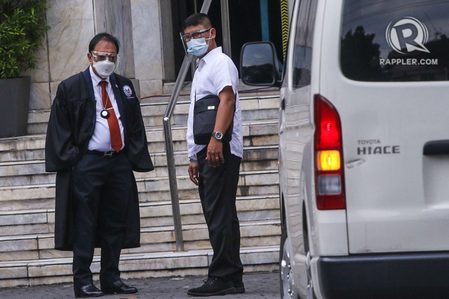
![[PODCAST] Law of Duterte Land: Deep dive into anti-terror law IRR](https://www.rappler.com/tachyon/2020/10/Law-of-DuterteLand-1280-pt-2-1.jpg?fit=449%2C449)
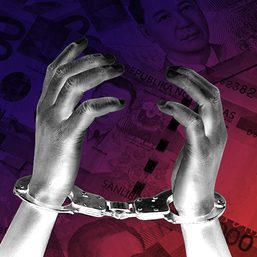
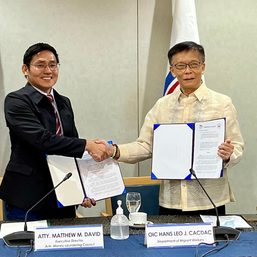
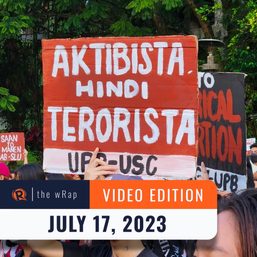
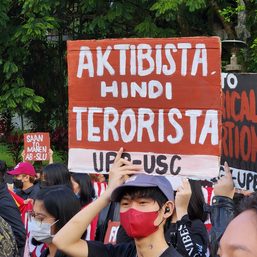
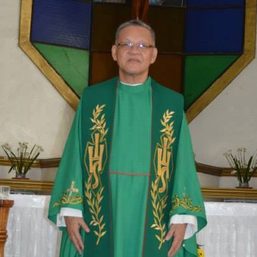
There are no comments yet. Add your comment to start the conversation.